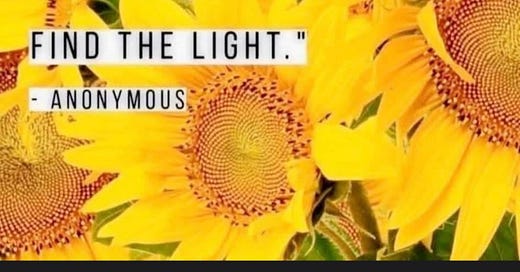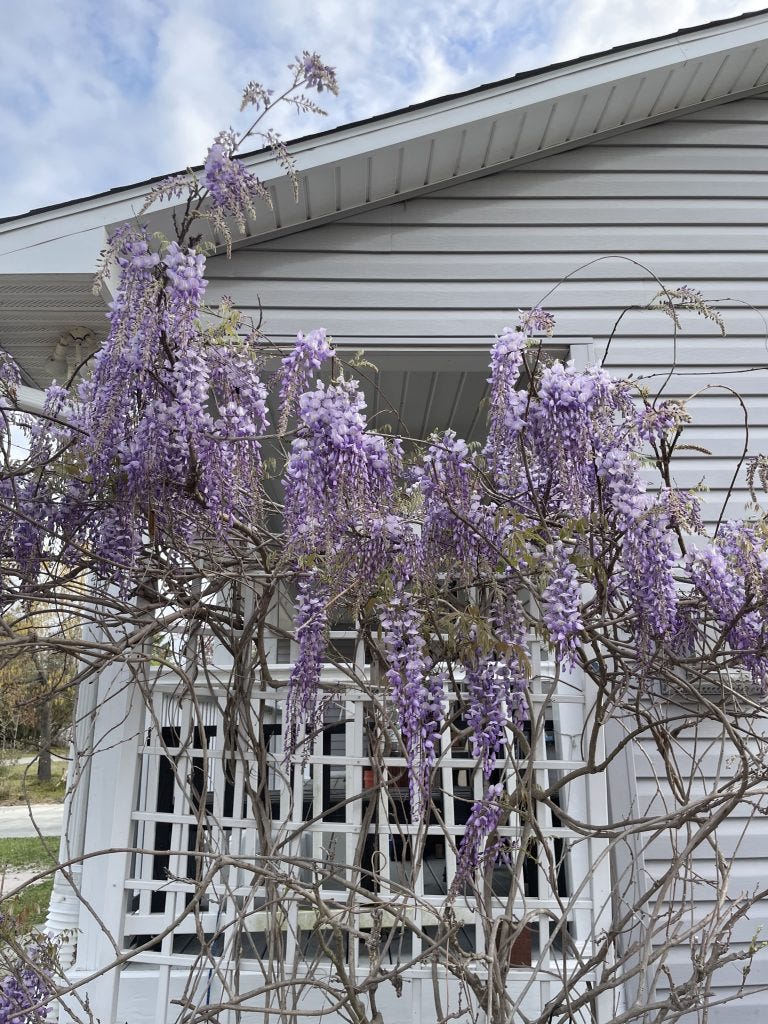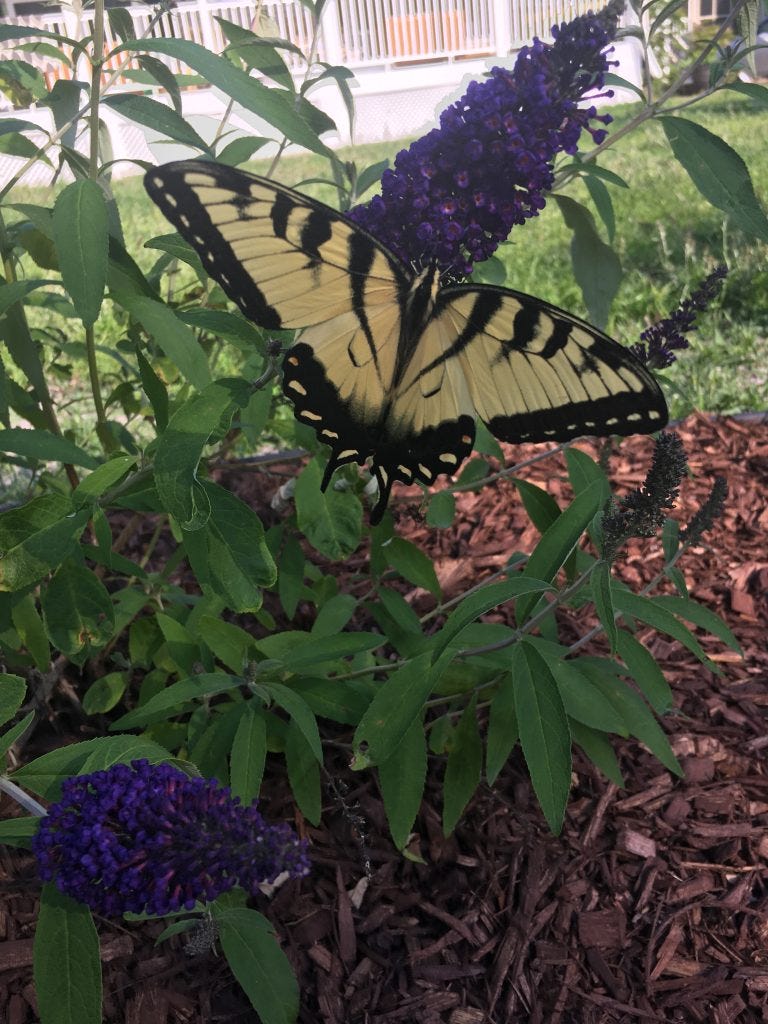There’s a lot of “standard” life lessons from gardening: phrases like, “seeds need good soil”, and “tend to the garden” and “enjoy the fruits of your labor”.
There’s nothing wrong with those, but they are the standard, common phrases. I like to learn more than the standard lessons from a centuries old tradition of planting seeds and watching them grow. We all know what it takes to start a garden – good soil, good seeds or young plants, water, sunlight, patience, etc.
That’s the easier part.
It’s the tending to the garden that might be more of a task because it has to be consistent. Often, daily. If not, plants die, weeds take over and all that care we took to start the garden was a waste of time.
Speaking of weeds – let’s start there. Ah, the arduous task of weeding out the garden after the winter season. We’ve tried all the natural methods to cut down on the weeds and some of it helps but not really. So, the only other method is to grab a bucket and some gloves and pull each weed out by hand.
It’s not the most fun part of gardening, and yet I’ve kind of learned to like it. There’s something about the “before and after” that I’ve really found great joy in – probably because my most favorite thing to do is bring a sense of order to unorganized, to make things neat that were messy. In gardening, it’s important to learn the difference between a weed and a plant/flower – sometimes, they can look similar.
Life Lesson: We all have “weeds” in our own life, too: sometimes they can be people, sometimes situations or jobs or anything else that takes away from or depletes the good things in our lives. It’s important to take the time to pull those weeds too, as in “weed out” the problems.
For the past three seasons, I’ve been carefully curating seed packets and plants to create a Hummingbird, Butterfly and Bee (HBB) specific garden. Well, gardens at this point since we have several areas in our yard dedicated to this purpose.
If a plant of flower isn’t beneficial to the HBB, I don’t want it. Well, except for the lemongrass, I use that as a natural fence and to keep the mosquitos away. I’ll occasionally have the random sunflower because we use black oil sunflower seeds in our bird feeders.
FUN FACT: Did you know that sunflowers actually turn themselves toward the sunlight?
Our landscaping/gardens consist of wisteria, crepe myrtle, butterfly bushes, salvia and other assorted plants that the professional gardeners told me are good for the HBB. My shopping style is to go to a local nursery with a budget in mind and ask them to point me in the direction of the plants for the HBB and then I pick based on what spaces I need to fill, the colors available and my budget.
Admittingly, I am one who doesn’t particularly like to spend too much time outside in the spring (allergies) and summer (heat and humidity) so it may seem odd that gardening is my hobby.
Like most people during the pandemic, I started a container garden on our front porch. I tried to grow tomatoes, peppers and cucumbers. I found it tedious to always be trying different ways, avoiding chemicals, to keep the insects off the plants. Despite my best efforts, my “crops” were never as good as the grocery store, and it seemed like a lot of wasted time and effort given the yield I was getting.
So, I gave up on it.
However, I realized that I missed the process. I missed the planting and watching the growth. I don’t care how many times I see it; there’s something amazing about watching a tiny little seed burst through that top layer of soil and grow into something beautiful.
But, growing vegetables was too frustrating for me so I switched to the “if you build it, they will come” strategy of building a HBB Habitat. We already had a well-established wisteria vine and a crepe myrtle tree. All I had to do was get more plants and seeds and figure out the placement.
I knew that the first year of this project was going to involve a bit of a financial investment, but I also knew that after that, I could propagate plants to create larger gardens.
Life Lesson: Sometimes the process of something is messy (i.e. digging in dirt) and a lot of work (digging holes, planting seeds, etc.) AND requires a financial investment, but once the process is complete, something beautiful comes out of it.
One of my biggest personal rules about working in the garden is NO NOISE – no music, no podcasts. Just the “music of nature” as I call it, listening to the birds. Without noise directly in my ears, I can hear the cardinals, bluejays, mockingbirds and various other birds that frequent the feeders. Recently, when I was working on our backyard landscaping, I heard a slight splashing in our backyard pond and when I turned around, I saw Momma Duck and her babies!!! I would not have heard them if I had my EarPods in my ears.
Gardening is also often my “thinking time” or just my “quiet time”. It’s become a very important part of my self-care routine, to have that time – usually in the mornings – to just be outside in nature, quiet and still.
(so as not to scare the baby ducks away!)
Life Lesson: Taking the time to be quiet and still, especially in nature, is SO good for our brains and our nervous system. Quieting the noise helps us learn to listen to our own inner voice. Being still, gives our brains a chance to recalibrate a bit from the busyness of life.
To create and plant a garden is to have HOPE.
HOPE that the seeds will grow. (They will!)
HOPE that the Butterflies, Bees and Hummingbirds will find it and come.
(They will!)
HOPE that the efforts of fertilizing, watering, weeding, etc. yield good results.
(It does!)
Life Lesson: There is ALWAYS Hope. Regardless of the situation, it’s always there. There’s faith, too – “faith as small as a mustard seed”. If you create and build one garden (i.e. growing vegetables) and it’s not working, build a different garden.
Did this post inspire you? I’d appreciate some coffee money to the virtual tip jar if you aren’t ready to commit to a subscription. Thank you!
Photos from the 2024 garden, butterflies on the Butterfly Bush and the Lantana.










I used to garden but I hurt my back and gave up on it too. We moved and have a smaller yard and this year I planted a few annuals - nothing too stressful. We have perennials that come up so I cleaned those up. My husband did way more than me.
Funny I was drafting a post and was using a garden metaphor about not letting others trample your garden. You work so hard to maintain it. How silly to just let someone ruin everything you’ve done with carelessness. Gardens are a perfect analogy.